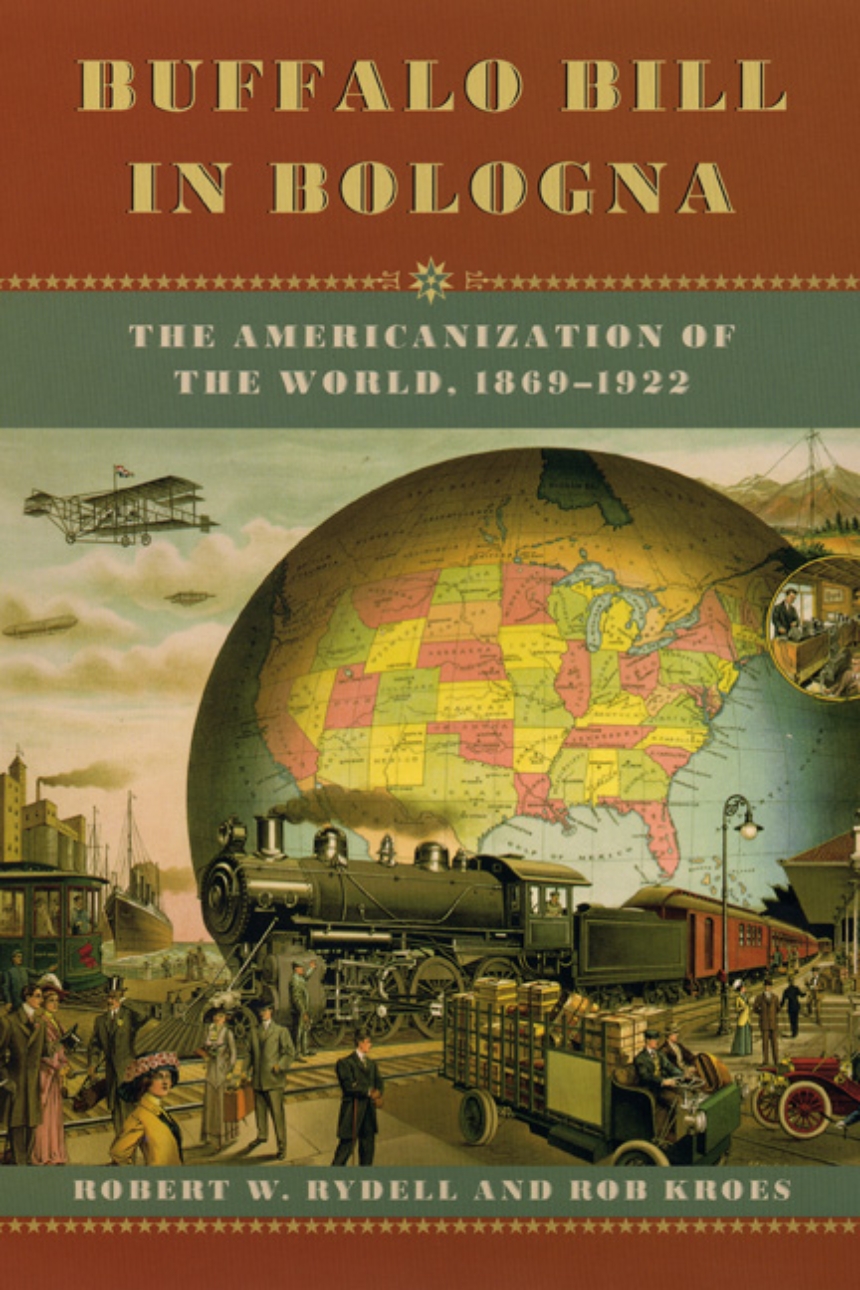Buffalo Bill in Bologna
The Americanization of the World, 1869-1922
9780226007120
9780226732428
9780226732343
Buffalo Bill in Bologna
The Americanization of the World, 1869-1922
When it comes to the production and distribution of mass culture, no country in modern times has come close to rivaling the success of America. From blue jeans in central Europe to Elvis Presley’s face on a Republic of Chad postage stamp, the reach of American mass culture extends into every corner of the globe. Most believe this is a twentieth-century phenomenon, but here Robert W. Rydell and Rob Kroes prove that its roots are far deeper.
Buffalo Bill in Bologna reveals that the process of globalizing American mass culture began as early as the mid-nineteenth century. In fact, by the end of World War I, the United States already boasted an advanced network of culture industries that served to promote American values. Rydell and Kroes narrate how the circuses, amusement parks, vaudeville, mail-order catalogs, dime novels, and movies developed after the Civil War—tools central to hastening the reconstruction of the country—actually doubled as agents of American cultural diplomacy abroad. As symbols of America’s version of the "good life," cultural products became a primary means for people around the world, especially in Europe, to reimagine both America and themselves in the context of America’s growing global sphere of influence. Paying special attention to the role of the world’s fairs, the exporting of Buffalo Bill’s Wild West show to Europe, the release of The Birth of a Nation, and Woodrow Wilson’s creation of the Committee on Public Information, Rydell and Kroes offer an absorbing tour through America’s cultural expansion at the turn of the century. Buffalo Bill in Bologna is thus a tour de force that recasts what has been popularly understood about this period of American and global history.
Buffalo Bill in Bologna reveals that the process of globalizing American mass culture began as early as the mid-nineteenth century. In fact, by the end of World War I, the United States already boasted an advanced network of culture industries that served to promote American values. Rydell and Kroes narrate how the circuses, amusement parks, vaudeville, mail-order catalogs, dime novels, and movies developed after the Civil War—tools central to hastening the reconstruction of the country—actually doubled as agents of American cultural diplomacy abroad. As symbols of America’s version of the "good life," cultural products became a primary means for people around the world, especially in Europe, to reimagine both America and themselves in the context of America’s growing global sphere of influence. Paying special attention to the role of the world’s fairs, the exporting of Buffalo Bill’s Wild West show to Europe, the release of The Birth of a Nation, and Woodrow Wilson’s creation of the Committee on Public Information, Rydell and Kroes offer an absorbing tour through America’s cultural expansion at the turn of the century. Buffalo Bill in Bologna is thus a tour de force that recasts what has been popularly understood about this period of American and global history.
Read an excerpt.
232 pages | 37 halftones | 6 x 9 | © 2005
Culture Studies:
History: American History
Reviews
Table of Contents
List of Illustrations
Acknowledgments
Introduction
1. American Mass Culture Takes Form
2. Harbingers of Mass Culture: World’s Fairs
3. The Expanding Frontiers of American Mass Culture
4. "The Americanization of the World"?
5. The Triumph of American Mass Culture
6. Debating American Mass Culture in the United States and Europe
Conclusion
Bibliographical Essay
Notes
Index
Acknowledgments
Introduction
1. American Mass Culture Takes Form
2. Harbingers of Mass Culture: World’s Fairs
3. The Expanding Frontiers of American Mass Culture
4. "The Americanization of the World"?
5. The Triumph of American Mass Culture
6. Debating American Mass Culture in the United States and Europe
Conclusion
Bibliographical Essay
Notes
Index
